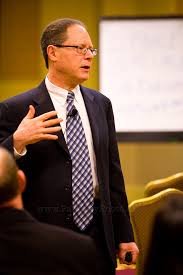 How much money have you lost in the market today? Is your insurance company still in business? Will it be in business tomorrow? Are you still working with your insurance agent financial planner, stock broker etc. who put you into this situation? Are you going to do anything about your situation? If you are like most people you will sell stuff and lose money, or do nothing while you lose more, your bank and insurance company goes out of business and your retirement plan savings disappears. It does not have to be this way. None of my clients have lost money. My retirement plans went up in value every month in 08. Why did you not have the same results? Who do you listen to for advice? Your broker, insurance agent financial planner, or your friends? They have all lost money. Things are going to get worse. You can do something to get your money back, or like most people keep losing. Don’t believe me put Lance Wallach into Google or any search engine to see what I do. Then compare it to whoever advises you. Who would you listen to now? Without serious knowledge of things like finances, taxes, tax audits, and retirement plans, it’s hard to keep ahead of things. And to ensure that your future is in good hands. Especially now, as the economy begins to change, it is smart to look into different ways to secure your future and money. Recent well documented events have made it increasingly important to educate yourself on how to handle such endeavors correctly. Thousands of businesses have closed as a result of bankruptcy, corrupt policies, lowered sales, and other factors, often because issues that seemingly, in hindsight, should have been obvious were overlooked. In this environment, more than ever, you simply cannot afford mistakes or omissions with respect to your finances. Such mistakes can result in audits and other problems. Websites such as IRS.gov, FinanceExperts.org, and TaxLibrary.us are resources that can help make sure that there are ZERO unpleasant surprises in your numbers. Additionally, keeping accurate records and constantly double checking your numbers are two obvious, yet often neglected, things that you should do. So the question stands: how knowledgeable are you about your own finances?
How much money have you lost in the market today? Is your insurance company still in business? Will it be in business tomorrow? Are you still working with your insurance agent financial planner, stock broker etc. who put you into this situation? Are you going to do anything about your situation? If you are like most people you will sell stuff and lose money, or do nothing while you lose more, your bank and insurance company goes out of business and your retirement plan savings disappears. It does not have to be this way. None of my clients have lost money. My retirement plans went up in value every month in 08. Why did you not have the same results? Who do you listen to for advice? Your broker, insurance agent financial planner, or your friends? They have all lost money. Things are going to get worse. You can do something to get your money back, or like most people keep losing. Don’t believe me put Lance Wallach into Google or any search engine to see what I do. Then compare it to whoever advises you. Who would you listen to now? Without serious knowledge of things like finances, taxes, tax audits, and retirement plans, it’s hard to keep ahead of things. And to ensure that your future is in good hands. Especially now, as the economy begins to change, it is smart to look into different ways to secure your future and money. Recent well documented events have made it increasingly important to educate yourself on how to handle such endeavors correctly. Thousands of businesses have closed as a result of bankruptcy, corrupt policies, lowered sales, and other factors, often because issues that seemingly, in hindsight, should have been obvious were overlooked. In this environment, more than ever, you simply cannot afford mistakes or omissions with respect to your finances. Such mistakes can result in audits and other problems. Websites such as IRS.gov, FinanceExperts.org, and TaxLibrary.us are resources that can help make sure that there are ZERO unpleasant surprises in your numbers. Additionally, keeping accurate records and constantly double checking your numbers are two obvious, yet often neglected, things that you should do. So the question stands: how knowledgeable are you about your own finances?
Many of you have received information about the current state of your investments in the past few months. Sticker shock would be an understatement. Thousands have been lost as a direct result of the fiascoes constantly occurring as of this writing. Savings that would not only brighten your futures, but in many cases investments that you planned to use for your children’s educations, are gone. The downward spiral will continue, as the shrapnel from these events moves throughout our failing economy. It won’t stop in the foreseeable future, and it will entail more than just monetary losses. The watchdog agencies that will now have to redeem themselves for failing to perform their regulatory functions, leading at least in part to all of these failures, will respond with increased scrutiny of American citizens and businesses in every manner imaginable. Trust me, no stone will be left unturned, including that of increased IRS audits for the express purpose of raising money, which in fact has already started.
All of which is why treading water in the tide of an ebbing economy is not a solution.
It would appear that the seemingly indestructible giants of Wall Street have begun to crumble. Lehman Brothers is no more, Merrill Lynch has been taken down a peg or two, and now, disaster is apparently looming over Morgan Stanley. To say nothing of the looming threat to the consumer banking industry. As industry insiders, we’ve seen the writing on the wall for quite some time. Now, everybody else can see it, too.
In this day, the veil has been pulled back on the stock market’s heavy hitters. Consumers now know there is indeed no “wizard” behind the curtain, just a few individuals in designer suits pulling down astronomical sums of money for the advice they send down from on high. Who can forget the images of the Lehman Brothers employees in New York City, emptying their offices into boxes and carrying them down Seventh Avenue? As sad as it was to see, it was a day we all had the feeling was coming, right? But now that it’s here, why don’t we feel any better?
The hopes of many investors in the stock market have been shaken to the core, but we cannot forget about the morose consumers and business owners. A number of individuals are suffering the potentially substantial loss (or potential loss) of their hard-earned money in a volatile market. Consumers need advisors who can guide them toward a safe harbor. As previously mentioned, financeexperts.org can give you the help you need in this failing economy. The leading authorities are members, and will most likely give helpful feedback. Consumers are fearful, and if they say they aren’t, it’s probable that they aren’t being honest. For most Americans today, a stress free retirement is looking more and more impossible, and the difficulties looming between ourselves and that goal seem insurmountable. But things do not have to look and seem so bleak.
Too many scoundrels plague Wall Street but, to some degree, we all feel the brunt. We hate to have an “I told you so” attitude, but at times it is hard to avoid. However, rather than dwell on this compassion, why not capitalize on it? Often unforeseen opportunities arise from the ashes of situations such as these. In fact, many such opportunities are available as I write this. They will be taken advantage of by those with the imagination and talent to position themselves to do so.
By reading this, you may be off to a good start. There are many ideas you will get from our leading finance experts to better run your business, reduce taxes and insurance costs, and much more. You will learn how to avoid audits, which are already up fifty (50) percent and are expected to increase further still, and turn your accountant into your protector instead of a tax collector. You will learn from Lance Wallach, who, as an American Institute of CPAs instructor and course developer, teaches CPAs. Lance also draws upon the knowledge and expertise of his associates, who are the leading finance experts in the United States. None of them work for any of the firms that were affected by the recent and ongoing financial fiascoes. Many of them perceived the arrival of these problems, and only their clients benefited because most other business people were too busy buying products from stockbrokers, insurance agents, and so-called financial planners who did not know what was going on.
In Lance’s spare time, between speaking at conventions, writing and helping a select few business owners, Lance appears as an expert witness. In fact, for two days in Sept 2008, Lance Wallach testified as an expert witness in Federal Court for a business owner that was sold a faulty financial product by a combination of his accountant and a so-called retirement plan expert. After Lance completed his testimony, the judge called the retirement plan salesman a “crook” and said that he should settle with the plaintiff. He did not, and the jury awarded the business owner TWICE what he had sued for. As a side note, Lance had advised the lawyer that this was a so called “ERISA case” and instead of the $400,000 that the business owner was suing for, $800,000 (double damages, as is possible in “ERISA” cases), could be awarded if the jury felt that was appropriate. The point is that, under no circumstances, should you be forced to lay down and take the abuse and malpractice that most salespeople pin on you. Get your financial and business affairs in order, and, if necessary, take some action! Take some serious action!
 Normally, courts prohibit witnesses from testifying based on their own opinions or analysis. See Federal Rule of Evidence 602. Courts relax these rules for expert witnessestestifying about matters within their field of expertise.
Normally, courts prohibit witnesses from testifying based on their own opinions or analysis. See Federal Rule of Evidence 602. Courts relax these rules for expert witnessestestifying about matters within their field of expertise.




